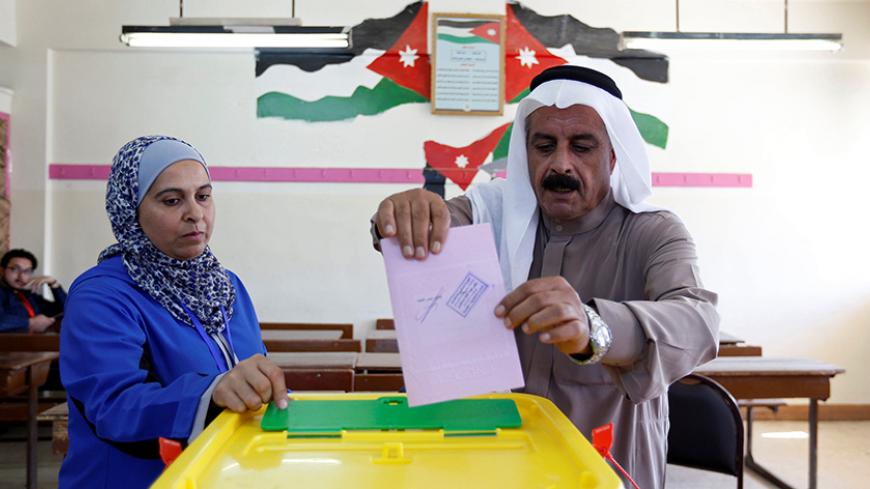Jordanians go to the polls today to elect their lower house of parliament. Middle East security observers will likely pay little attention. Jordan is not the most powerful state in the region, and its parliament, a traditionally weak institution, was further constrained by constitutional reforms earlier this year that increased the king's powers over the security services. Jordan is, however, a crucial Western ally and has spared many a headache through its ability to sidestep the unrest raging around it.
While Jordan’s security services deserve most of the credit for the relative calm in Jordan, they naturally have little sway over the economic and sociopolitical issues that underwrite the long-term stability of the Hashemite kingdom. Indeed, from Tunisia and Egypt to Syria and Yemen, the greatest recent challenges to Sunni Arab leaders have emerged from domestic grievances. The Arab monarchies have largely avoided this turmoil, but while the Gulf kingdoms enjoy a huge cushion of oil wealth, resource-poor countries like Jordan have greater incentive to develop the structural foundations of long-term stability and prosperity.



